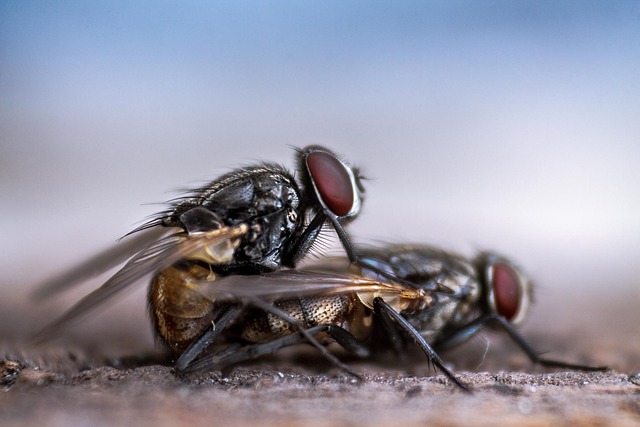To effectively manage flies, identify their gathering spots like damp, warm areas and entry points into homes through cracks. Regular cleaning and sanitation routines are crucial, focusing on removing organic debris, standing water, and food sources to eliminate breeding grounds. Selecting fly control services requires understanding specific fly issues, researching reputable IPM specialists, and considering eco-friendly products, cost, warranty, and aftercare. A comprehensive maintenance schedule including inspections, cleaning, waste management, sealing entry points, and professional assistance ensures a fly-free environment.
Keeping your property fly-free requires a strategic approach. This article guides you through an essential framework for effective fly control, focusing on preventive maintenance. From identifying common fly habitats and entry points to establishing a comprehensive cleaning and sanitation routine, we provide actionable insights. Learn how regular inspections and the right fly control services and products can significantly reduce infestations. Ultimately, a well-planned maintenance schedule ensures a healthier, more comfortable living or working environment.
Understanding Common Fly Habitats and Entry Points
Understanding where flies congregate is the first step in any effective fly control service. Common habitats include damp, warm areas such as garbage dumps, compost piles, and wet leaves. These environments breed fly larvae, which then emerge as adults, seeking new sources of food and breeding grounds. Entry points for flies into homes and commercial properties are equally important to identify. Cracks in walls, doorsills, windows, and even utility pipes provide easy access for these pests. Regular inspections by professionals can help pinpoint these entry points and seal them off, disrupting the fly life cycle.
By recognizing these habitats and entry points, property owners and managers can work with fly control services to implement tailored strategies. This may involve removing potential breeding sites, installing screens or seals, and using targeted treatments to disrupt adult fly populations. Such proactive measures are key to maintaining a fly-free environment, ensuring the health and comfort of occupants.
Implementing Regular Cleaning and Sanitation Routines
Implementing regular cleaning and sanitation routines is a key component in any effective fly control services strategy. Flies thrive in environments with organic debris, standing water, and food sources, so consistent removal of these attractants is essential. Regularly scheduled deep cleaning sessions help to eliminate potential breeding grounds, reducing the population significantly.
Focus on areas like garbage bins, kitchen waste disposal units, and any outdoor trash receptacles, ensuring they are securely closed and cleaned frequently. Additionally, maintaining a spotless interior, promptly addressing spills, and storing food in airtight containers will deter flies from finding suitable habitats within properties.
Choosing Effective Fly Control Services and Products
When it comes to selecting fly control services and products, property owners must be strategic in their approach. The market offers a wide array of options, from chemical treatments to natural repellents, each with its own advantages and limitations. It’s crucial to understand the specific needs of your property and the types of flies you’re dealing with—houseflies, fruit flies, or mosquitoes—as this will guide your choice of fly control services. Researching reputable companies that specialize in these services is essential; look for experience, positive reviews, and an understanding of integrated pest management (IPM) practices.
Effective fly control goes beyond quick fixes. Professional services often employ a combination of strategies, including identifying and sealing entry points, implementing traps, and applying targeted treatments. Opting for eco-friendly or organic products can be appealing, but ensure they are proven to be effective against your particular fly issue. Additionally, consider the cost, warranty, and aftercare services offered by different providers to make an informed decision that ensures long-term fly control.
Establishing a Comprehensive Maintenance Schedule
Establishing a comprehensive maintenance schedule is a key strategy in any property management plan, especially for maintaining a fly-free environment. This involves regular inspections and proactive measures to identify and address potential breeding grounds and entry points. Property managers should collaborate with professional fly control services to create a tailored schedule.
Regular cleaning routines, including thorough waste management and eliminating standing water, are essential components of this schedule. Additionally, sealing entry points like cracks and gaps in windows and doors can prevent flies from invading. Implementing these practices ensures that the property remains not just clean but also safe from fly infestations, promoting a healthy and pleasant living space for residents.
Maintaining a fly-free environment is essential for any property owner. By understanding common fly habitats, implementing regular cleaning routines, choosing effective fly control services, and establishing a comprehensive maintenance schedule, you can significantly reduce fly populations. Regular inspection and proactive measures are key to preventing fly infestations and ensuring a healthy living space. Consider investing in professional fly control services to complement your efforts and achieve long-lasting results.
